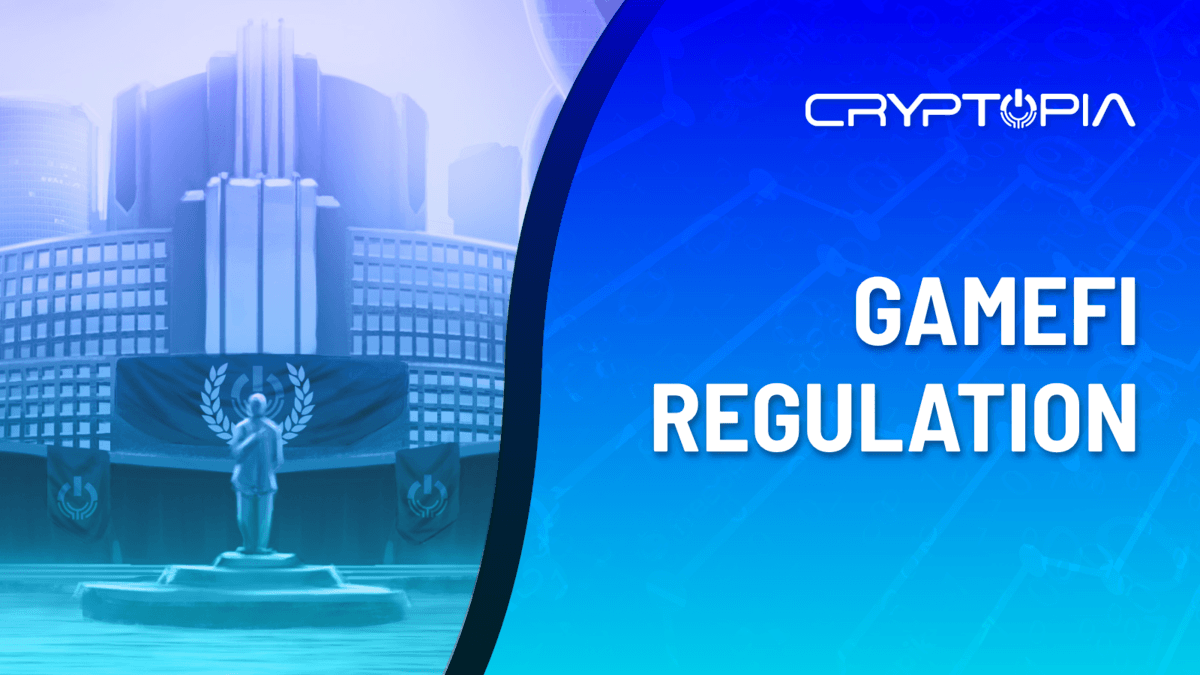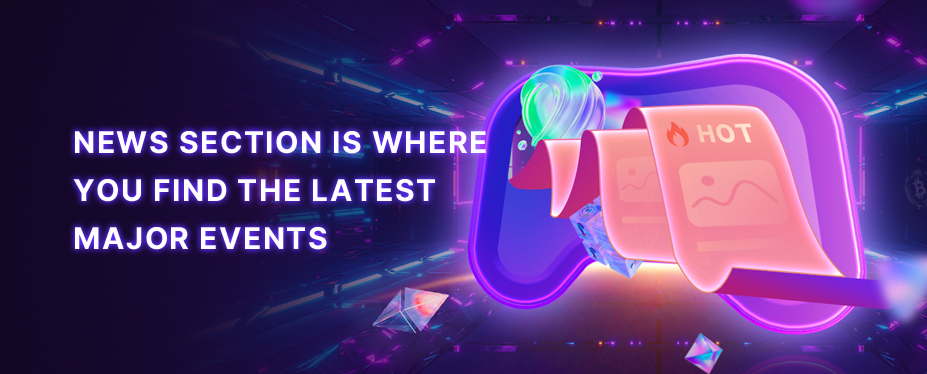GameFi Regulation
The GameFi industry is still young, and part of its journey is coming to terms with regulations, particularly when it comes to laws around investments. For example, there is still uncertainty when it comes to classifying digital assets as an investment class known as securities.
To begin with, let’s clarify some terms.
What is GameFi?
As the name suggests, GameFi is a combination of gaming and finance, where both meet in the environment of the blockchain, digital tokens, and smart contracts. Essentially, GameFi lets you earn while you play, which has proven to be popular among online gamers. GameFi allows players a measure of control by allowing them ownership of digital assets such as tokens which, in-game, may represent weapons, land, resources, and so on. These assets can grow in value and be bought, sold, or traded.
How is a Digital Asset Considered a Security?
- An investment of money
- In a common enterprise
- With the expectation of profits
- To be derived from the efforts of others
This test is applied on a case-by-case basis and will rely on the facts and circumstances for each asset; just because one token is considered a security, doesn’t mean it applies to all tokens.
For example, Bitcoin (BTC) is not considered a security. Per SEC Chair Garry Gensler, Bitcoin is decentralized such that no group or individual owns it. On the other hand, Ethereum (ETH), might be a security based on the test.
Blockchain Games and Security Laws
Thus far, earning a token from playing a blockchain game is in the gray area; depending on the amount of effort a player puts into influencing that token’s value, it may be considered a security. In all, because the Howey test is applied on a case-to-case basis, gray areas abound in blockchain games.
For instance, some games use governance tokens, a type of utility token that allows players to vote on the blockchain and influence the game’s mechanics. Governance tokens may be bought or otherwise earned as a reward by adding funds to the platform or participating in various incentives. Games such as Decentraland and Idle Mystic use governance tokens to let players voice their proposals and vote on the direction of the game.
Another area requiring further study is the use of a single token in a blockchain game. Decentraland has adopted this, as did Crypto Zoon, Playvalkyr, and Hashland. The single-token approach may be considered in the gray zone depending on the gameplay—that is, players may earn their tokens from playing the game rather than outright buying them. The caveat is that having the capacity to re-invest the token in the game could flag it as a security.
A two-token approach may be considered wherein one token works for utility, serving roles within the blockchain game, and the other serves as a security to raise money for the project. One would not be convertible to the other. Projects such as MakerDAO, Centric, and Axie Infinity use this. However, note that the free-to-earn approach may not work for this system.
The new blockchain game Cryptopia has a two-pronged approach. Firstly, Cryptopia utilizes a single token as both an in-game currency and a governance token: the Cryptopia Token (CRT). In-game tokens may appreciate in value through the actions of the community, but some assets owned by the player avatar may also appreciate in value through the player putting effort into the game and advancing one’s character. What’s more, Cryptopia is also free-to-play-and-earn. Without investing money and simply playing, you can get CRT and re-invest it in-game. You can become an asset holder by purchasing a ship, a blueprint, or a rare tool without using real money. The creators of Cryptopia have pledged to research and consult with experts on the legalities surrounding their offering and the impact on their players.
One takeaway from this discussion is that any game creator must be transparent in their terms of service regarding their tokens. They need to specify what the tokens are designed for and any further changes to their use as the game progresses. Similarly, players must read and understand what is in the terms of service and ensure that they are getting what they are paying for.
On a related note, DAOs (decentralized autonomous organizations) are yet another major point of discussion for blockchain games as they govern the in-game policies and how in-game resources are used. In our next article, we shall go into a deeper discussion on DAOs, particularly on their regulation.
————————————————————————————————————
What is Cryptopia?
Cryptopia is an upcoming blockchain game that stands out by design:
• Free to earn: everyone can play and earn. No need to buy an NFT first
• 100% decentralized: the game runs on the blockchain in combination with a node network
• Fun to play: play the way you want!
[Website] https://cryptopia.com
[Wiki] https://wiki.cryptopia.com
[Discord] https://discord.com/invite/cryptopia
[Facebook] https://www.facebook.com/CryptopiaOFCL
[Twitter] https://twitter.com/CryptopiaOFCL
[YouTube] https://www.youtube.com/@CryptopiaOFCL
[Instagram] https://www.instagram.com/cryptopiaofcl
[CoinMarketCap] https://coinmarketcap.com/community/profile/Cryptopia
[Twitch] https://www.twitch.tv/cryptopiaofcl
[Spotify] https://open.spotify.com/show/4jkkGIZyiSkQvYLWqGLWVE
[Private sale] https://cryptopia.com/privatesale
[Early-access NFTs] https://app.cryptopia.com/early-access
[Cryptopia Roadmap] https://sharing.clickup.com/24415847/b/q93k7-827/board
[Why invest in Cryptopia?] https://youtu.be/AqbTSlKgoTk






